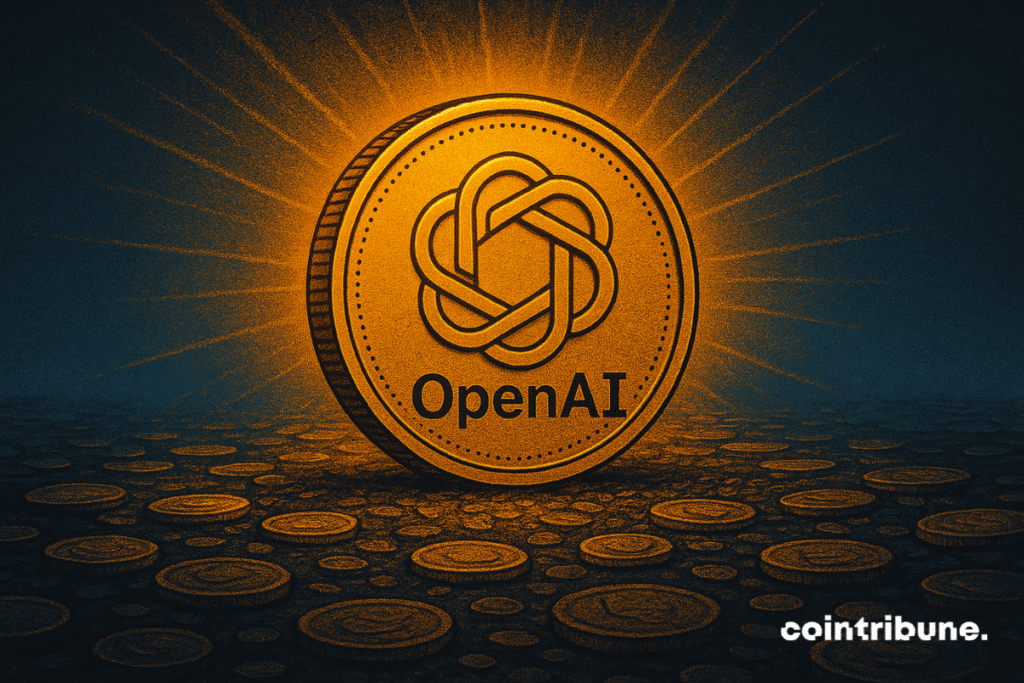Robinhood Sparks Firestorm With Tokenized OpenAI Shares—Crypto Meets AI in Wall Street’s Latest Gamble
Robinhood just threw gasoline on the crypto-traditional finance divide—and the flames are spreading fast. Their new tokenized OpenAI shares product blurs regulatory lines while giving retail traders a dangerous new toy. Here's why it matters.
Wall Street's favorite disruptor-turned-establishment-player is at it again. By slicing OpenAI equity into blockchain-tradable tokens, Robinhood isn't just bridging markets—it's playing with fire in one of finance's most contentious battlegrounds.
The backlash came swift: purists scream 'security risk' while crypto maximalists hail it as the future of asset ownership. Meanwhile, hedge funds are already building arbitrage bots to exploit the inevitable price discrepancies between traditional and tokenized shares.
One thing's certain—when you mix volatile AI stocks with crypto's wild west mentality, somebody's going to get rich. And it probably won't be the little guy holding the bag when regulators finally step in.

In Brief
- Robinhood launched tokens linked to OpenAI, sparking debate over demand for tokenized private equity.
- Critics say there’s little retail interest or real ownership, while others see long-term potential if trust and transparency improve.
- The real-world asset market is growing fast, but tokenized private equity still faces uncertainty around investor appetite.
The hype and the reality
Robinhood’s announcement, pitched as a way for European users to access high-growth tech companies like OpenAI and SpaceX through tokenized shares, was met with enthusiasm, until OpenAI clarified it had no official involvement. The tokens, it turns out, don’t represent real equity but rather a derivative tracking OpenAI’s estimated valuation.
That distinction may sound small, but it shows the Core tension in real-world asset tokenization: transparency and actual ownership.
According to analytics platform RWA.xyz, the RWA market is close to a $25 billion market cap, $14.5 billion of which is in private credit. Tokenized private equity, however, remains a small slice of that pie.
BTCUSDT chart by TradingViewIs there retail demand for tokenized equity?
Opinions differ on whether there’s real appetite for tokenized access to private companies.
Dinari CEO Gabe Otte is skeptical. His company, which offers tokenized public equities, has explored private markets but found little demand.
Most pre-IPO companies are hesitant to carve out part of their cap table for tokenized buyers.
Plume Network CEO Chris Yin agrees.
If you look at the numbers, demand just isn’t there.
But not everyone is so bearish. Injective’s Mirza Uddin believes tokenized equity could open venture-style investing to everyday users.
This isn’t about new markets, it’s about making old ones more accessible.
Regulators show interest
SEC Chairman Paul Atkins expressed cautious optimism. Without directly commenting on Robinhood, he told CNBC that demand for tokenized private products is real, and growing.
Others in the space agree. Kevin Rusher of RWA startup RAAC said the market is moving quickly and expects private equity tokenization to follow the path of private credit.
The verdict
Much of the interest in Robinhood’s OpenAI tokens may come down to name recognition. Tokenization alone doesn’t create investor demand. What matters is the quality of the asset, the transparency of the offer, and the trust behind the platform.
In that sense, Robinhood’s MOVE may be more useful as a marketing experiment than a financial breakthrough. But it still adds fuel to a growing RWA trend.
Maximize your Cointribune experience with our "Read to Earn" program! For every article you read, earn points and access exclusive rewards. Sign up now and start earning benefits.

